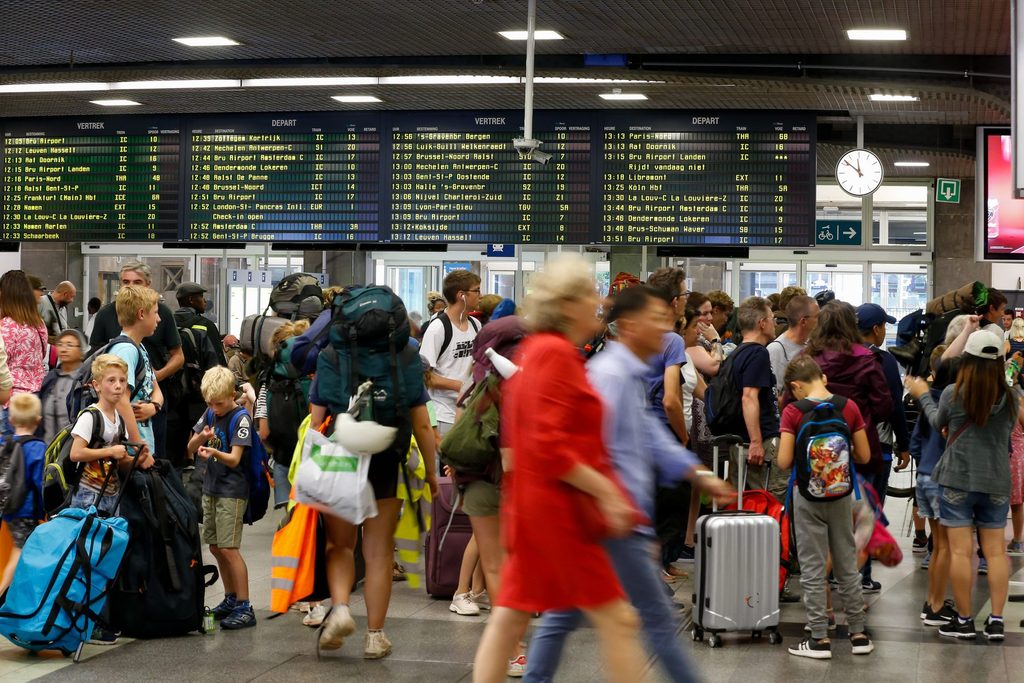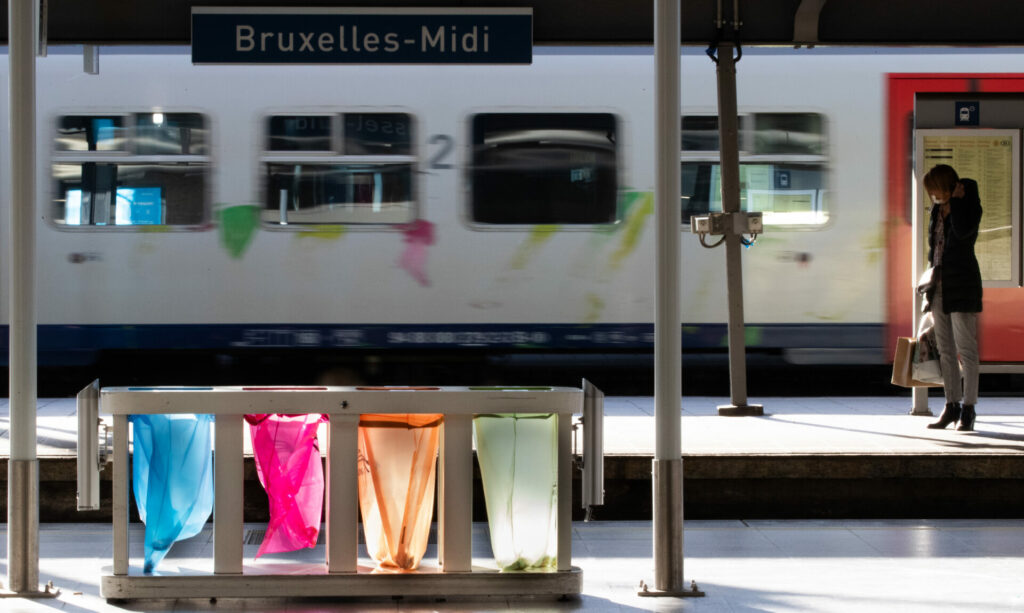At 22:00 on Tuesday night, a 48-hour joint railway union strike on Belgium's railways started, leading to disrupted train traffic across the country over the coming two days.
As part of a double two-day strike already announced in October, railway staff will strike from 22:00 on Tuesday 7 November until 22:00 on Thursday 9 November. A second strike will follow next month, from 5 to 7 December.
"An alternative offer is being worked out for the coming days, based on the working staff, so we can still offer a guaranteed service," Bart Crols, spokesperson for SNCB, told The Brussels Times. "It will not be entirely the same for both days, but we can assume there will not be much difference."
On Tuesday, it will become clear which trains are running on Wednesday. Then on Wednesday, the schedule for Thursday will be updated, Crols explained. Depending on the staff available to work, disruption may be greater in some provinces than others.
As transparent as possible
"This way, passengers can see in advance where they stand instead. That is the difference with previous strikes when it was often only clear in the morning which trains were running and which were not," he said. "All trains that are not running will be taken out of the schedule, meaning the app and the screens in the stations will only show those that are operating. That way, we try to provide as much transparency as possible to passengers."
On both strike days, about half of the IC trains (connections between larger cities) and two in five of the other trains will run, according to SNCB's website. Most P trains, known as peak-hour trains, will not run.
Which exact trains will (not) run on Wednesday can currently already be checked on SNCB's website or app. For Thursday, more detailed information will be made available on Wednesday. "Still, further adjustments remain possible at all times throughout the days themselves."

Credit: Belga/Nicolas Maeterlinck
For most trains that do not run, an alternative route (with a possible transfer) has been made possible. For example, no direct IC trains will run between Turnhout and Antwerp, but passengers from Turnhout can still get to Antwerp via a transfer in Mechelen. Travellers are advised to plan their journey on the day of departure.
The only two routes where no alternative route has been found are between Aalst and Burst and between Hasselt and Mol.
Travellers who arrive late at work or school due to the strike can download a hindrance certificate on the SNCB website, which will be available until seven days after the strike. Whether they can also claim financial compensation depends on a case-by-case basis.
The general rule is that travellers are entitled to compensation if they are delayed by more than 60 minutes during their train journey or if their train does not run – but this does not apply if they were made aware of the delay before they bought a ticket.
Why are the unions striking?
Among the railway staff, discontent about SNCB's internal reorganisation and "productivity measures" that management wants to implement has been growing for a while. Among other things, plans to cut the time train conductors have to start up a train from 20 to 10 minutes was met with a lot of resistance.
That case was "the last straw," Koen De Mey, Flemish chairman of ACV Transcom, told VRT. More generally, the unions are calling for the "cessation of productivity increases to the detriment of railway staff," he added.
Related News
- Belgian railway strike: SNCB expects 50% of intercity trains to run on Wednesday
- 'Untenable': Liège railway workers call strike to voice frustration against SNCB
- Railway unions give strike notice for November and December
"A 48-hour strike twice is very unusual, but the discontent has never been greater either," Günther Blauwens, Flemish president of ACOD Spoor, said in a press release. "The prevailing staff shortages increase the work pressure. Every day, staff are confronted with failing work tools and an unworkable railway structure. There is more need than ever for stability at the railway."
In the meantime, SNCB, Infrabel and HR Rail have repeatedly made it clear that they condemn the strike action and consider it "disproportionate and irresponsible." Earlier this week, SNCB's CEO Sophie Dutordoir said that she would meet with the three union presidents to avoid the second 48-hour strike in December.

